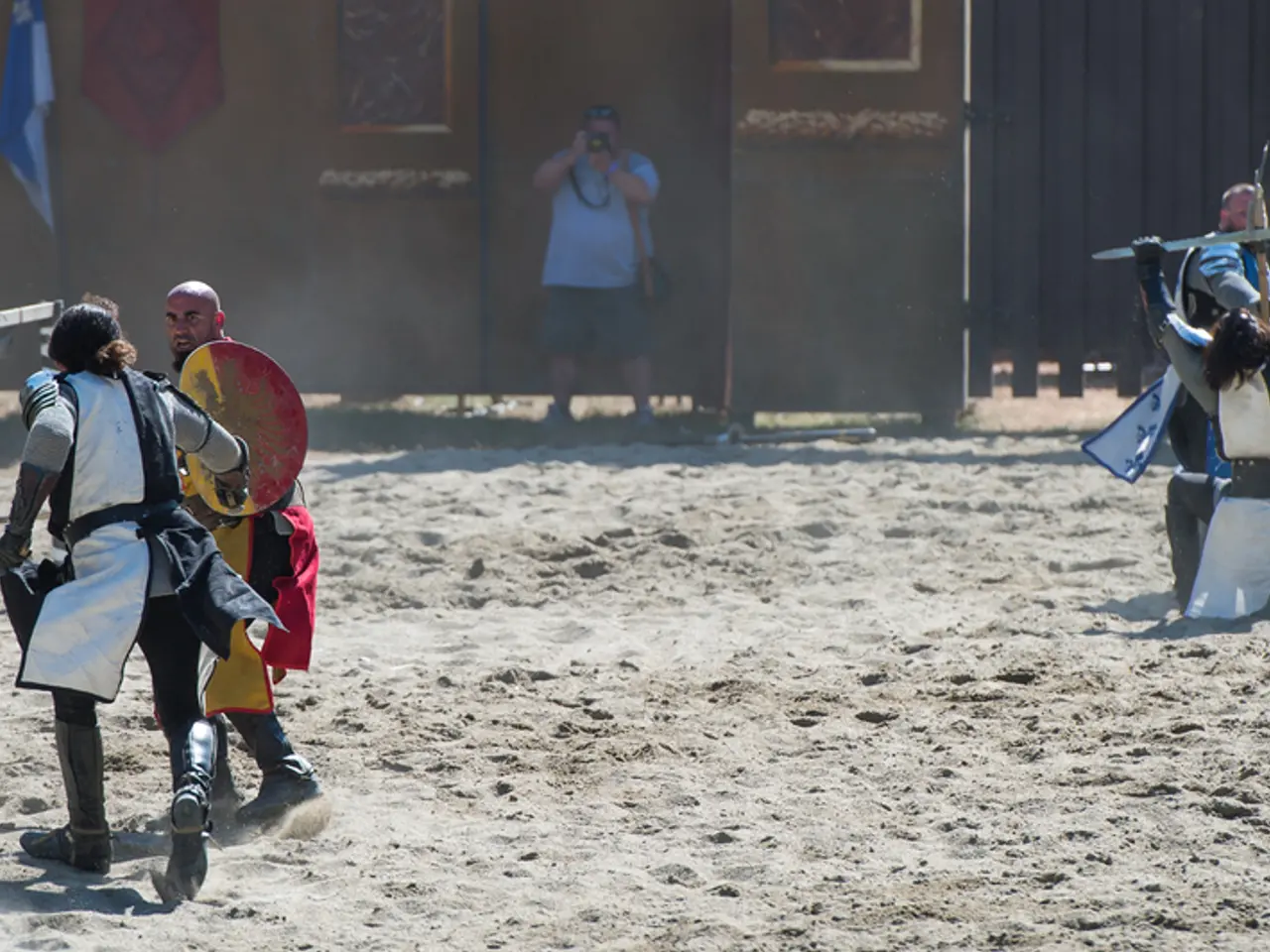Anticipated Scenario of a Chinese Invasion Portrayed in Taiwanese TV Shows and Video Games
In a shift from the past, Taiwanese filmmakers are increasingly exploring the sensitive topic of cross-strait conflict, as portrayed in recent media productions such as the TV series "Zero Day Attack" and the board game "2045."
According to Yu-Hui Tai, an associate professor of political economics of communication at National Yang Ming Chiao Tung University in Taiwan, this trend signifies a change in the cultural landscape, with imagining a Chinese invasion no longer considered taboo.
"Zero Day Attack" and Taiwan's Internal Struggles
Giddens Ko, the director and showrunner of the Taiwanese TV series project "Zero Day Attack," presents a fictional Chinese invasion in 2028. The series delves into Taiwan's internal struggles amid a potential war, highlighting the political divisions and chaos on the island.
Cheng, the showrunner and screenwriter of "Zero Day Attack," argues that government subsidies are common for most local film and TV projects, and the "sense of national doom" comes from the reality of a powerful authoritarian regime continually warning it will not abandon the use of force against Taiwan.
Debate and Controversy
The series has sparked debate, with some viewers praising it for helping Taiwanese understand CCP infiltration, while others accuse it of selling a sense of national doom. Taiwan's main opposition Kuomintang (KMT) has even accused the ruling Democratic Progressive Party (DPP) of using public funds to promote a "sense of national doom" in the series.
"2045" and Emotional Strain
Another game, "2045," simulates a Chinese military attack in 2045 and Taiwan's subsequent division into six different forces. Tammy Lin, a digital games and media psychology professor, states that imagining a nightmare-level topic like a Chinese invasion can evoke a spectrum of emotions in Taiwan. Playing games like "2045" can leave some Taiwanese customers feeling emotionally strained or under pressure.
"Reversed Front" and Countermeasures
Johnny, the spokesperson of "Reversed Front," aims to present a realistic picture of the political landscape in East Asia and hopes Taiwan can learn how to take countermeasures against infiltration from Beijing. The game allows players to infiltrate the Chinese Communist Party from Taiwan, Hong Kong, or other surrounding areas.
However, Hong Kong authorities have banned the mobile version of "Reversed Front" for allegedly violating the National Security Law. China's Defense Ministry has also criticized "Zero Day Attack," calling it a politically motivated production aimed at forcing conflict between Taiwan and mainland China.
The Geopolitical Context
Taiwan is a self-governing democracy that Beijing claims is part of China, with the CCP vowing to "reunify" with the mainland by using force if necessary. Taiwan is one of the globe's most contentious flash points as China intensifies its military presence in the region and carries out regular exercises around the island.
Beijing may see TV shows and games as Taiwanese public sentiment drifting further away from China, which could prompt the Chinese government to intensify its ideological efforts. As these media productions continue to gain popularity, the question remains whether they foster rational dialogue or create fear, and whether they contribute to the division or unity of Taiwanese society.
Read also:
- Lu Shiow-yen's Challenging Position as Chair of the Chinese Nationalist Party (KMT) Under Scrutiny in Donovan's Analysis
- Voters in Germany are urging Friedrich Merz to apply pressure on Israel
- Enemy Forces Have Taken Ukrainian Prisoner
- BJP Persuaded Delhi Voters That Supporting AAP Was Pointless, According to Pavan K. Varma








